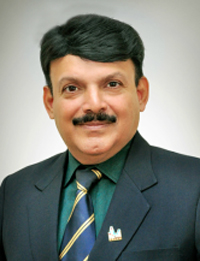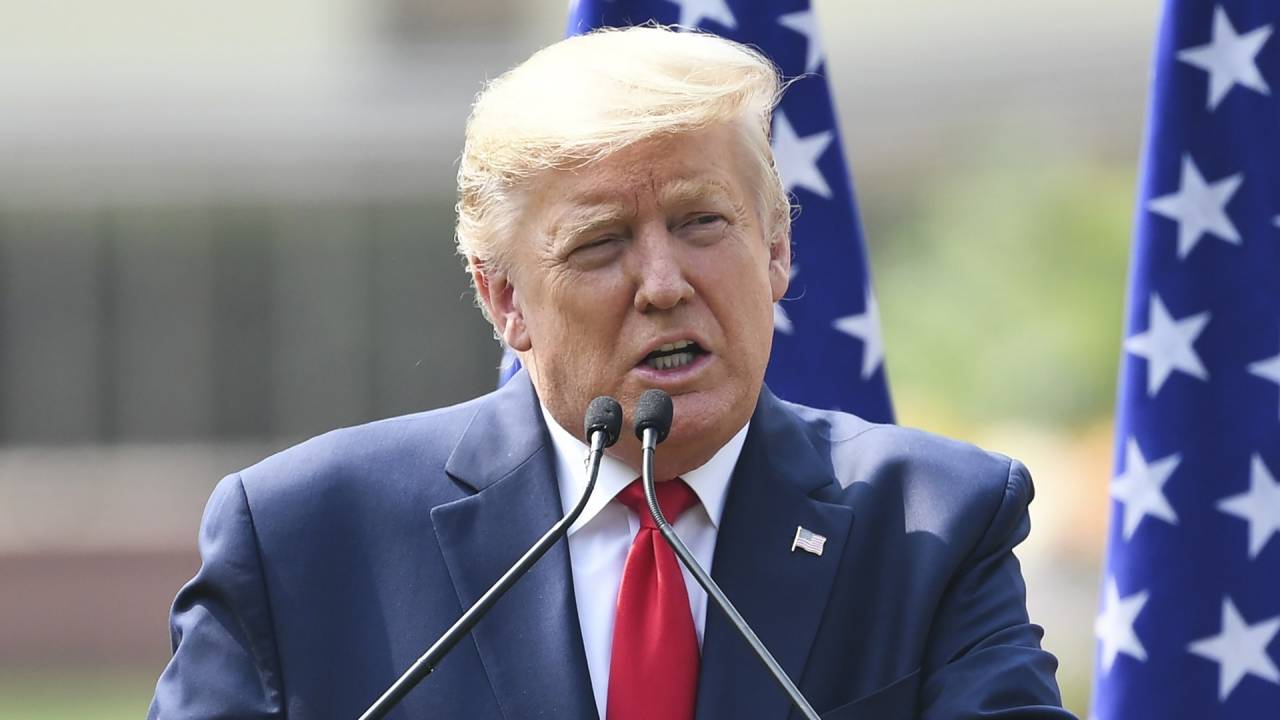A war anywhere means a massive surge in drug consumption by troops on either side, regular addicts as well as fresh consumers. The world is presently seeing horrifying pictures of how the terror organization Hamas was savagely butchering small children, women being raped and slaughtered, elderly being massacred, and soldiers being burnt alive. Similar terrible scenes were seen when ISIS was ravaging the Yazidis. Still earlier the Al-Qaeda was carrying out brutal executions and unspeakable atrocities on innocent people in the name of religion. All countries were watching as mere spectators, content with issuing mere verbal platitudes. The sudden, unwarranted attack by terror group Hamas on Israel sees the same re-enactment of brutalities and savagery. When expected retaliation comes, there is an outcry against Israel to show restraint and tolerance. Why do terror groups behave ruthlessly and barbarically?
The unique socioeconomic context in Palestine, replete with political and economic tensions, terror groups imposing fundamentalism and radicalization, creates conditions that compels Palestinians to seek refuge in drugs. The four regions in Palestine: the West Bank (north, middle, and south) and the Gaza Strip, have been using illicit drugs for decades. In January 2023, there was a major seizure of thousands of Captagon or Fenethylline pills from the West Bank to the Gaza Strip. Officials said the pills were hidden in the doors of refrigerators. The shipment, which was enroute to the Gaza Strip was found at the Tarqumiyah Crossing, in the southern West Bank.

A survey of the Middle East countries, brings to light the active role of Captagon, known by its genetic name Fenethylline, an addictive drug that complicates the War on Drugs. Consumption of “Captagon” outside the Middle East is negligible, according to the United Nations Office on Drugs and Crime (UNODC), but it is a significant drug there. Dubbed “the poor man’s cocaine”, Captagon is reportedly one of the most popular drugs among youths in the Middle East. Lebanon and neighbouring Syria are conduit routes for the drug.
Captagon has a strong Central Nervous System (CNS) stimulating effect than its primary metabolite, Amphetamine. Captagon’s psychoactive effects acts faster and far more potently than those of Amphetamine alone. It imparts strong aggression, detachment, cognitive enhancement, and long periods of alertness. This powerful stimulant is manufactured mostly in Lebanon and Syria. Much of it is bound for illegal recreational use in Saudi Arabia. Israeli officials call it the “Islamic State drug,” as it has been used extensively by jihadists belonging to ISIS and other terror groups to commit horrific crimes on the Yazidis. It is also known as the ‘Jihadi Drug’.
Captagon is considered by far Syria’s biggest export, dwarfing all its legal exports put together, according to estimates drawn from official data by Agence France-Presse a French international news agency (AFP). More than 400 million pills were seized in the Middle East and beyond in 2021, according to official figures. As is the case everywhere, the seizure figures are just the tip of the iceberg. That means, even with a low average price of $5 per tablet, and only four out of five shipments getting through, Captagon is at least a $10 billion industry!
It is not only the terrorists who depend on illicit drugs, even the civilians in Palestine are drug dependent, to escape from the horrors of food shortages, unemployment and disrupted family lives. Polydrug use is a serious issue in Palestine, especially in the West Bank, and synthetic marijuana use is rampant among teenagers and young adults. Drug consumption in Palestine includes marijuana, prescription medications (anti-depressants, Z-hypnotics, benzodiazepines and analgesics) and novel psychoactive substances (NPS), synthetic marijuana, methadone, morphine, phencyclidine, barbiturates, benzodiazepines and synthetic opioids such as tramadol, and Gabapentinoid drugs such as Pregabalin. Gazan society depends on a vast network of cross border tunnels, some as much as 18 meters underground, which have become crucial supply routes for Palestinians to transport essentials, weapons and illicit drugs that have become hot commodities in the burgeoning tunnel trade. Despite consistent border seizures of smuggled drugs, thousands of boxes of Tramadol, “ecstasy” pills and large quantities of hashish, still make their way to Gazans who are increasingly dependent on drugs, many having become seriously addicted. This has fuelled a lucrative criminal economy of illicit drugs, and the rise of a wealthy class of drug merchants.
Alcohol is another CNS depressant commonly used in combination with these drugs. Palestinian law allows for its production and sale!
The Hamas-run Military Justice Commission in the Gaza Strip, enforces tight laws to control the drug epidemic. The PLO’s Revolutionary Penal Code of 1979, is used to punish drug offenders, including imposition of death penalty. But, many human rights organizations have condemned the Hamas government for issuing death sentences against Palestinians, saying such rulings contradict the legal obligations of the state of Palestine’s obligations under international conventions, including the 1989 Second Optional Protocol to the International Covenant on Civil and Political Rights 1989 — which is aimed at abolishing the death penalty. Palestine joined this Covenant only in 2018.
While terror organization Hamas blames Israel for the drug influx into Gaza, another factor that has grabbed attention is that the global isolation of Syria’s President Bashar al-Assad came to an end with the Arab League reinstating Syria as its member, and the discussions on the trade of Captagon pills have taken the centre-stage once again.
Several reports over the years have claimed that sales of the drug, estimated to be worth several billion dollars a year, have profited Al-Assad, his associates and his family. New direct links between the multi-billion dollar Captagon drug trade and leading members of the Syrian Armed Forces and President Bashar Al-Assad’s family have been revealed in a joint investigation by BBC News Arabic and the investigative journalism network OCCRP, in June 2023. The Latakia Port, is the starting point for the transport of narcotics out of Syria. The Joe Biden administration initiated an interagency counter-Captagon strategy and joint sanctions with the United Kingdom and European Union on Syrian and Lebanese actors involved with the industry, as well as including Captagon in the US led Global Coalition to Address Synthetic Drug Threats.
Terror group Hezbollah is among the groups operating on Syrian soil to regulate the Captagon trade. Hezbollah has rich experience in controlling the production and smuggling of drugs from the Beqaa Valley in the south of Lebanon to support its own Captagon industry.
Europe is a key transit hub for Captagon. Traffickers have increasingly been using European countries to ship Captagon tablets traveling from the Middle East back to the Arabian Peninsula, according to the European Monitoring Centre for Drugs and Drug Addiction (EMCDDA) the German Federal Criminal Police Office (BKA), and the Center for Operational Analysis and Research (COAR), a Cyprus-based consultancy. In April 2023, the EU joined the United States and the United Kingdom in sanctioning Syrian nationals connected to the Captagon trade, including members of the Assad family, officials in the Syrian army and leaders of regime-affiliated militias. Middle Eastern countries especially Saudi Arabia, has been the destination for some of the largest Captagon shipments in recent years. Syria’s transformation into a narco-state is sowing new seeds of misery across the Middle East. It is estimated that there are about 160 groups operating in southern Syria. A brief survey of the Middle East Captagon trade, throws up interesting insights into the ongoing Captagon trafficking and consumption.
In August 2022, Saudi Authorities seized 46 million amphetamine pills that were smuggled in a shipment of flour. Six Syrians and two Pakistanis were arrested. The Syrian government and allied armed groups, such as the Lebanese Hezbollah movement, have been accused of overseeing production and distribution of Captagon, though they have denied any involvement in the drugs trade.
Saudi Arabia has seized more than 700 million narcotic pills that had entered its territory via Lebanon over the past eight years.
In 2021 the Saudi government suspended all fruit and vegetable imports from Lebanon after five million Captagon tablets were hidden inside about 2,000 pomegranates shipped from Beirut.

In November 2020, Egyptian authorities seized a large shipment of Captagon worth over EGP 113 million (around $7 million) in transit via the port city of Damietta. Over 3.2 million tablets of the drug was smuggled inside a canned corn container, which was in transit at the Egyptian port upon arrival from an undisclosed Arab country. Again in January 2021, Egypt seized drugs worth $39 million after intercepting a container transiting from one Arab country to another, which had eight million super-strength “Captagon” amphetamine pills and nine tons of hashish. Again in September 2022, Egyptian authorities seized cannabis that weighed 87 kilograms, a quantity of hydroxy drug that weighed 10 kilograms, heroin that weighed 4 kilograms, and 9000 tablets of Captagon drug, a quantity of banjo (Benzodiazepines) that weighed 25 kilograms.
In March 2023 in operation Double Strike, officers from Sea Customs Centres Management at Dubai Customs seized 32.8 million narcotic pills which were found hidden in a shipment of food and medical equipment, that came from an Asian country, whose identity has not been revealed. Inspectors, using smart customs submarines also seized 1.2 million Captagon pills, weighing 227kg at Deira Wharfage Customs Centre. The pill in its current form combines several highly addictive stimulants that “compound the destructive effects of Captagon’s amphetamine and theophylline combination,” according to the Dubai Customs. Over the past three years (2020-2021-2022), Dubai Customs thwarted more than 2600 attempts to smuggle drugs, and trafficking of prohibited and high-risk substances.
In September 2023, Dubai Police seized 13 tonnes of Captagon, comprising 86 million tablets after seizing five shipping containers, as well as dismantling 651 doors and 432 wooden panels to get to the narcotics. The value of the consignment was estimated at $1 billion.
In the latest World Drug Report, the UN Office on Drugs and Crime (UNODC) states that counterfeit Captagon production in the Middle East was centred primarily on Syria and Lebanon, where it’s manufactured illicitly for domestic use and export. This counterfeit version of the drug often contains amphetamine, alongside caffeine and other substances. The UNODC report also states that trafficking the drugs was “an additional source of income for terrorist and insurgency groups” in the Near and Middle East.
The present conflict in Gaza has become a tangled web of drug fuelled terrorists, mixture of ideologies and political agendas, religious fundamentalism, porous borders, many criminal elements and organized networks dealing with weapons, money, and people. Just below it, experts suspect, they’re powered by something else: Captagon. The millions of Captagon pills being seized indicates that the orgy of violence being unleashed by Hamas on Israel, is a Captagon fuelled Armageddon.
India’s Opposition political parties of all genres, have displayed remarkable immaturity by openly pitching for Hamas terrorists. Their myopic attitude, has only one short term goal, that of garnering Muslim votes, that are traded in bulk. At this juncture, India can ill-afford to get sucked up in the ultra-lucrative Captagon trafficking circuit, for the complete matrix also involves terrorism, fundamentalism and money laundering.



















Discussion about this post